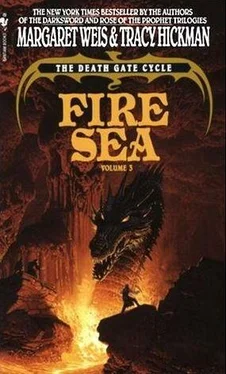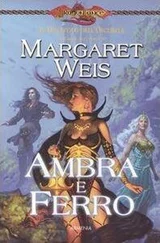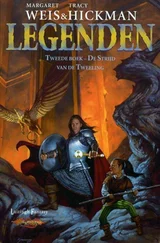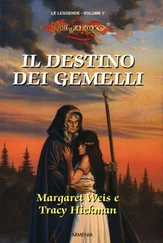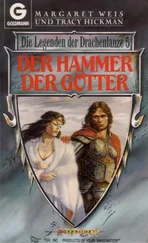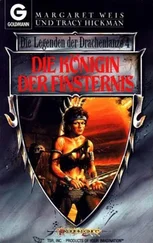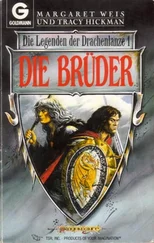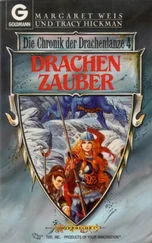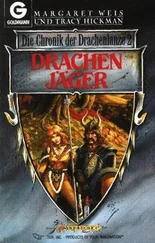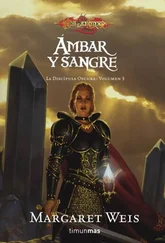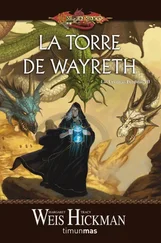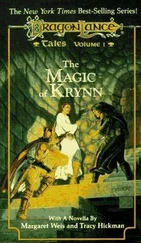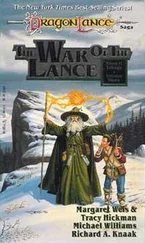Margaret Weis - Fire Sea
Здесь есть возможность читать онлайн «Margaret Weis - Fire Sea» весь текст электронной книги совершенно бесплатно (целиком полную версию без сокращений). В некоторых случаях можно слушать аудио, скачать через торрент в формате fb2 и присутствует краткое содержание. Жанр: Фэнтези, на английском языке. Описание произведения, (предисловие) а так же отзывы посетителей доступны на портале библиотеки ЛибКат.
- Название:Fire Sea
- Автор:
- Жанр:
- Год:неизвестен
- ISBN:нет данных
- Рейтинг книги:4 / 5. Голосов: 1
-
Избранное:Добавить в избранное
- Отзывы:
-
Ваша оценка:
- 80
- 1
- 2
- 3
- 4
- 5
Fire Sea: краткое содержание, описание и аннотация
Предлагаем к чтению аннотацию, описание, краткое содержание или предисловие (зависит от того, что написал сам автор книги «Fire Sea»). Если вы не нашли необходимую информацию о книге — напишите в комментариях, мы постараемся отыскать её.
Fire Sea — читать онлайн бесплатно полную книгу (весь текст) целиком
Ниже представлен текст книги, разбитый по страницам. Система сохранения места последней прочитанной страницы, позволяет с удобством читать онлайн бесплатно книгу «Fire Sea», без необходимости каждый раз заново искать на чём Вы остановились. Поставьте закладку, и сможете в любой момент перейти на страницу, на которой закончили чтение.
Интервал:
Закладка:
The dog leapt from the deck to the pier below. Haplo followed, landing almost as silently and lightly as the animal. Alfred remained on deck, dithering nervously, pacing back and forth.
Haplo, exasperated, was on the point of leaving the man when suddenly, with desperate courage, Alfred launched himself into the air, arms and legs flailing, and landed in a confused heap on the rock pier. It took him several moments to sort himself out, looking for all the world as if he were endeavoring to decide which limb went where and making mistakes as he went along. Haplo watched, half-amused, wholly irritated, inclined to assist the clumsy Sartan simply to expedite their progress. Alfred at last pulled himself together, discovered no bones were broken, and fell into step beside Haplo and the dog.
They wandered slowly down the pier, Haplo taking his time investigating. He stopped once to stare closely at several bales stacked on the docks. The dog sniffed around them. Alfred gazed at them curiously.
“What are they, do you think?”
“Raw material of some sort,” Haplo answered, touching it gingerly. “Fibrous, soft. Might be used for making cloth. I—” He paused, leaned closer to the bale, almost as if he were sniffing it, like his dog. He straightened, pointed. “What do you make of that?”
Alfred appeared rather startled at being thus addressed, but he leaned down, squinting his mild eyes and peering distractedly. “What? I can’t—”
“Look closely. Those marks on the sides of the bales.”
Alfred thrust his nose nearly into the product, gave a start, paled slightly, and drew back.
“Well?” Haplo demanded.
“I... can’t be sure.”
“The hell you can’t.”
“The markings are smudged, difficult to read.”
Haplo shook his head, and walked on, whistling to the dog, who thought it had found a rat and was pawing frantically at the bottom of a bale.
The town of obsidian was silent, the silence was ominous and oppressive. No heads peered out of the windows, no children ran through the streets. Yet it had obviously once been filled with life, as impossible as that might seem, so near the magma sea whose heat and fumes must kill any ordinary mortal.
Ordinary mortals. Not demigods.
Haplo continued his scrutiny of the various goods and bundles piled up on the pier. Occasionally, he paused and shot a closer glance at one and when he did this, he often pointed it out silently to Alfred, who would look at it, look at Haplo, and shrug his stooped shoulders in perplexity.
The two moved into the town proper. No one hailed them, greeted them, threatened them. Haplo was certain, now, that no one would. The pricking of certain runes on his skin would have alerted him to the presence of anything living; his magic was doing nothing more than keeping his body cool and filtering out harmful properties in the air. Alfred appeared nervous—but then Alfred would have appeared nervous walking into a children’s nursery.
Two questions were on Haplo’s mind: Who had been here and why weren’t they here any longer?
The town itself was a collection of buildings carved of the black rock, fronting a single street. One building, standing almost directly opposite the pier, boasted thick-paned, crude glass windows. Haplo looked inside. Several globes of soft, warm light ranged around the walls, illuminating a large common room filled with tables and chairs. Perhaps an inn.
The inn’s door was woven out of a heavy, coarse, grasslike substance, similar to hemp. The fiber had then been coated with a thick, glossy resin that made it smooth and impervious to weather. The door stood partially ajar, not in welcome, but as if the owner had left in such haste he’d neglected to shut it.
Haplo was about to step inside and investigate when a mark on the door caught his attention. He stared at it, the doubt in his mind hardening into finality. He said nothing, his finger jabbed at the door, at the mark on the door.
“Yes,” said Alfred quietly, “a rune structure.”
“A Sartan rune structure,” Haplo corrected, his voice grating harshly.
“A corrupted Sartan rune, or perhaps altered would be a better choice of words. I couldn’t speak it, nor use it.” Head bobbing, shoulders hunched, Alfred looked singularly like a turtle, emerging from its shell. “And I can’t explain it.”
“It’s the same as those marks we saw on the bales.”
“I don’t know how you can tell.” Alfred wouldn’t commit himself. “Those were almost worn off.”
Haplo’s mind went back to Pryan, to the Sartan city he’d discovered. He’d seen runes there as well, but not on the inns. The inns of Pryan hung out signs of welcome in human, elven, dwarven. He recalled, too, that the dwarf—what had been that fellow’s name?—had known something of the rune magic, but only in a crude and childlike fashion. Any three-year-old Sartan could have bettered the Pryan dwarf in a rune-scrying contest.
This rune structure may have been corrupted, but it was sophisticated, runes of protection for the inn, runes of blessing for those who entered. At last, Haplo had found what he had been seeking, what he had been dreading to find—the enemy. And, if he was to judge by appearance, he was standing in an entire civilization of them.
Great. Just great.
Haplo entered the inn, booted feet padding softly across the carpeted floor.
Alfred crept along behind, looked about in amazement. “Whoever was here certainly left in a hurry!”
Haplo was in a bad mood, not inclined for conversation. He continued his investigation in silence. He examined the lamps, was surprised to see that they had no wicks. A jet of air flowed from a small pipe in the wall. The flame burned off the air. Haplo blew out the flame, sniffed, and wrinkled his nose. Breathe that too long without benefit of magic and you’d quietly cease to breathe.
Haplo heard a noise, glanced around. Alfred had automatically and without thinking carefully righted an overturned chair. The dog sniffed a hunk of meat left lying on the floor.
And all around the Patryn, everywhere he turned his glance, were Sartan runes.
“Your people haven’t been gone long,” he observed, noting the bitterness in his voice, hoping it covered the crawling, twisting knot of fear, of anger, of despair.
“Don’t call them that!” Alfred protested. Was he trying hard not to build his hopes too high? Or did he sound as frightened as Haplo? “There’s no other evidence—”
“Like hell! Could humans, no matter how advanced in magic, live long in this poisonous atmosphere? Could elves? Dwarves? No! The only people who could survive are your people.”
“Or yours!” Alfred pointed out.
“Yeah, well, we all know that’s not possible!”
“We don’t know anything. Mensch might live here. Over time, they might have adapted.. .”
Haplo turned away, sorry he’d brought it up. “It’s no use speculating. We’ll probably find out soon enough. These people, whoever they are, haven’t been gone long.”
“How can you tell?”
In answer, the Patryn held up a loaf of bread he’d just broken. “Stale on the outside,” Haplo said, poking at it. “Soft in the center. If it’d been left out long, it would be stale all the way through. And no one bothered to put runes of preservation on it, so they expected to eat it, not store it.”
“I see.” Alfred was admiring. “I never would have noticed.”
“You learn to notice, in the Labyrinth. Those who don’t, don’t survive.”
The Sartan, uncomfortable, changed the subject. “Why do you think they left?”
“My guess is war,” Haplo answered, lifting a filled wineglass. He sniffed at the contents. The stuff smelled awful.
“War!” Alfred’s shocked tone brought the Patryn immediately to attention.
Читать дальшеИнтервал:
Закладка:
Похожие книги на «Fire Sea»
Представляем Вашему вниманию похожие книги на «Fire Sea» списком для выбора. Мы отобрали схожую по названию и смыслу литературу в надежде предоставить читателям больше вариантов отыскать новые, интересные, ещё непрочитанные произведения.
Обсуждение, отзывы о книге «Fire Sea» и просто собственные мнения читателей. Оставьте ваши комментарии, напишите, что Вы думаете о произведении, его смысле или главных героях. Укажите что конкретно понравилось, а что нет, и почему Вы так считаете.
